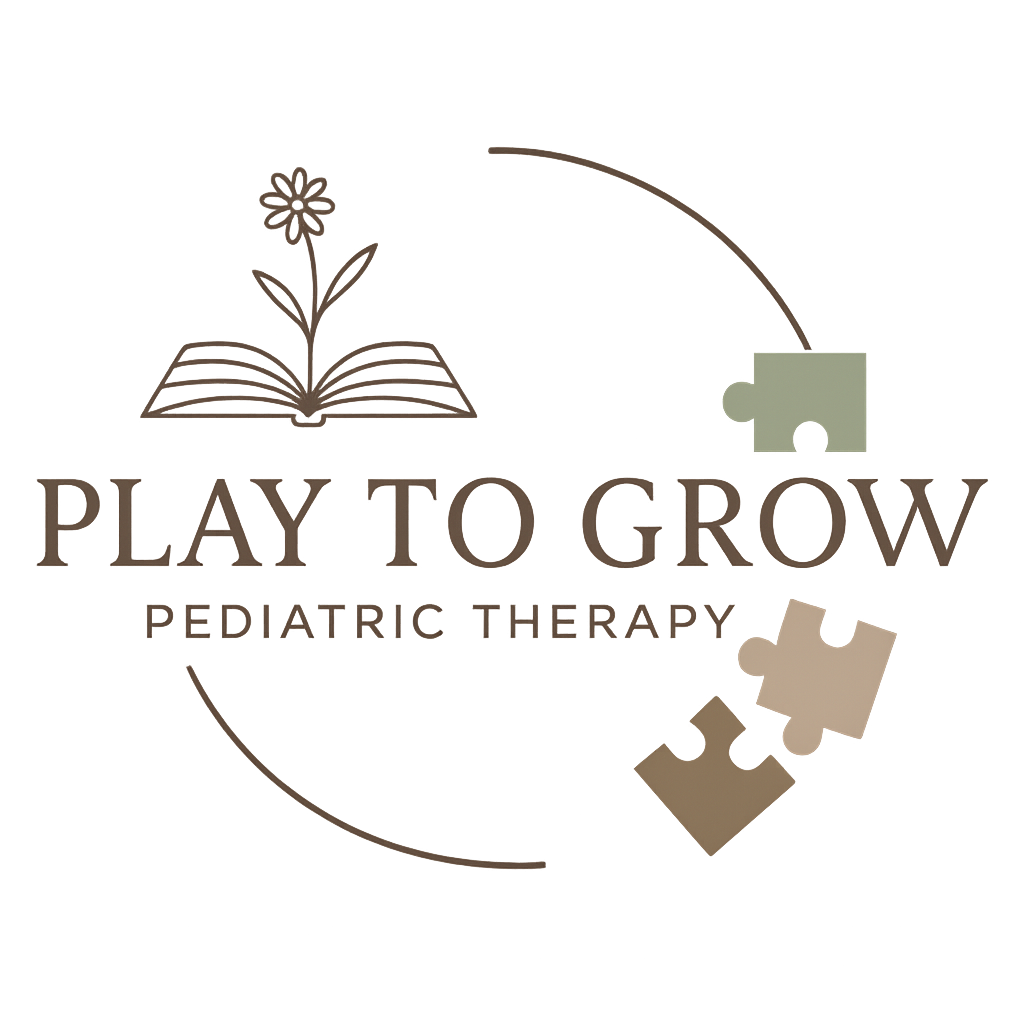Occupational Therapy
Pediatric occupational therapy helps children develop the skills they need to participate in daily routines and activities at home, at school, and in the community.
At Play to Grow, we take a functional, whole-child approach by identifying the underlying challenges that may be impacting a child’s participation and building the foundational skills that support engagement in daily life.
Below are some of the areas commonly addressed in therapy:
Fine Motor Skills
Fine motor skills involve the small muscles of the hands and fingers. These skills are essential for tasks such as writing, using scissors, buttoning clothing, tying shoes, and using eating utensils.
Visual Motor Skills
Visual motor skills are how the eyes and hands work together to complete tasks. This includes activities like copying shapes or letters, cutting, catching a ball, and building with blocks.
Daily Living Skills
Activities of daily living (ADLs) are the everyday tasks children learn as they develop independence. These include dressing, feeding, grooming, using the bathroom, and managing personal items like backpacks and school supplies.
Sensory Processing
Sensory processing refers to how the brain receives, interprets, and responds to input from the senses such as touch, sound, movement, and sight. Some children may be more sensitive to sensory input, while others may seek out more input to feel calm and focused. Occupational therapy supports children in responding to sensory information in ways that promote regulation, attention, and success in daily routines.

